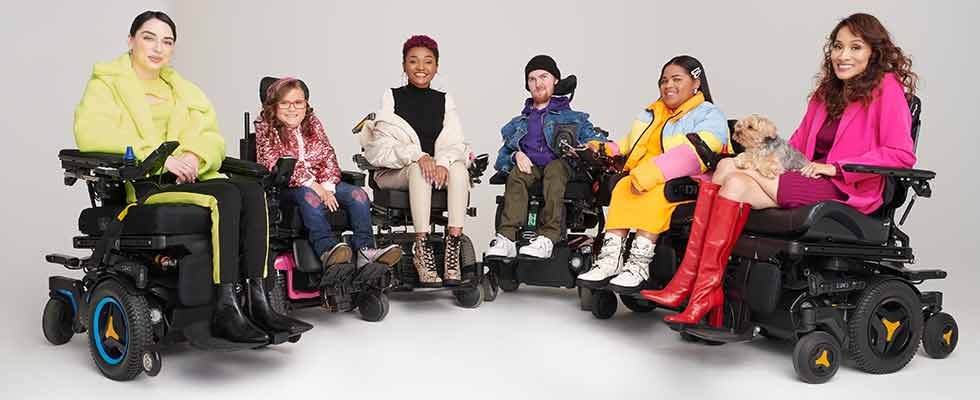
Cars are getting safer: There are backup cameras, lane departure warnings and sensors that apply the brakes when they notice an obstruction. But for all the technology being poured into cars, power wheelchair users have lacked the same protection.
That didn’t sound right to Barry Dean, who was introduced to wheelchairs when his daughter, Katherine, who was born 16 weeks early, was diagnosed with cerebral palsy. Dean’s name might be familiar—he’s a Grammy-nominated songwriter based in Nashville. And now he’s also CEO of LUCI, a company that has created a smart device that adds extra safety to a power wheelchair.
“I’m a dad really,” said Dean. “We purchased her first chair when she was very young. And it was a scary thing. There’s this big chair with this tiny little girl, and the speed hadn’t been set properly. So she took off down the hall and the assistive technology professional jumped and grabbed the little rail in the back—and bang—it went right into the wall. She was fine, but it was really scary. I parked that chair in the garage for at least a year.”
Katherine is now 20, but that experience stuck with Dean. As Katherine craved independence, Dean sought safety. But there wasn’t anything out there to meet his needs. So, he and his brother, Jered Dean—a systems engineer with experience in everything from dialysis machines to aerospace—built it from scratch. They’ve assembled a team of programmers, roboticists, engineers and designeers to bring LUCI to life.
“We ended up inventing our own millimeter-wave radar, which is the new cutting-edge type of radar,” Dean said. “We created custom and proprietary ultrasonics, because normal ultrasonics weren’t going to work in this environment.”
Car-based safety systems, Dean said, can use the stripes on the road and digital maps to help keep drivers safe. But power chair users are operating on sidewalks and inside buildings, where those tools aren’t available. LUCI also includes Intel RealSense cameras in its suite of tools to help prevent tipping, collisions and sudden drop-offs.
What Makes Tech ‘Smart?’
LUCI is a hardware and software package. Dean noticed that there was increasing inclusivity in technology, from cellphones to smart devices and wearables. But the power wheelchair market was missing out.
“What makes it smart is it’s connected to the real world,” said Dean. “It provides technology inclusivity to all manner of devices and information.” He added that the device should foster further innovation in the space.
The new company, which officially launched June 2020, has already announced distribution deals with Numotion, Permobil and National Seating and Mobility. Dean said the company is in talks with all of the major manufacturers and distributors to make sure the device can be included on as many chairs as possible.
He also said there are dreams of one day expanding further into the mobility market with a LUCI option for scooters. But for now, the brothers are focused on their first mission—making power wheelchairs safer and more inclusive.
“We’re in a very different place. We don’t make wheelchairs, and we’re not a supplier,” Dean said. “So we are a very different kind of company, but I can say we’re excited to be talking to all the manufacturers now, and we’re thrilled with their excitement. Our hope is to be able to work with all of them and in the best possible way.”
Kristin Easterling is managing editor of HomeCare magazine.
